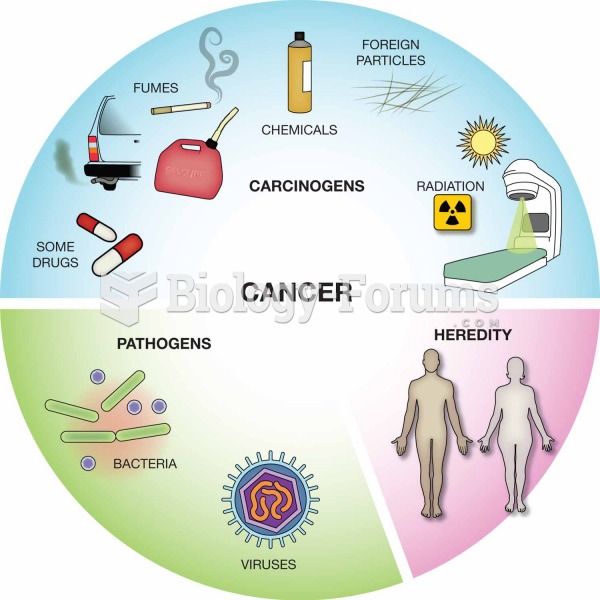|
|
|
Once thought to have neurofibromatosis, Joseph Merrick (also known as "the elephant man") is now, in retrospect, thought by clinical experts to have had Proteus syndrome. This endocrine disease causes continued and abnormal growth of the bones, muscles, skin, and so on and can become completely debilitating with severe deformities occurring anywhere on the body.
Drying your hands with a paper towel will reduce the bacterial count on your hands by 45–60%.
Certain topical medications such as clotrimazole and betamethasone are not approved for use in children younger than 12 years of age. They must be used very cautiously, as directed by a doctor, to treat any child. Children have a much greater response to topical steroid medications.
For pediatric patients, intravenous fluids are the most commonly cited products involved in medication errors that are reported to the USP.
HIV testing reach is still limited. An estimated 40% of people with HIV (more than 14 million) remain undiagnosed and do not know their infection status.
 Multiple sclerosis (MS). (a) A disease characterized by the gradual development of small areas of ha
Multiple sclerosis (MS). (a) A disease characterized by the gradual development of small areas of ha
 Breast cancer. Notice the tumor growing within a lactiferous gland, which occurs in infiltrating duc
Breast cancer. Notice the tumor growing within a lactiferous gland, which occurs in infiltrating duc





